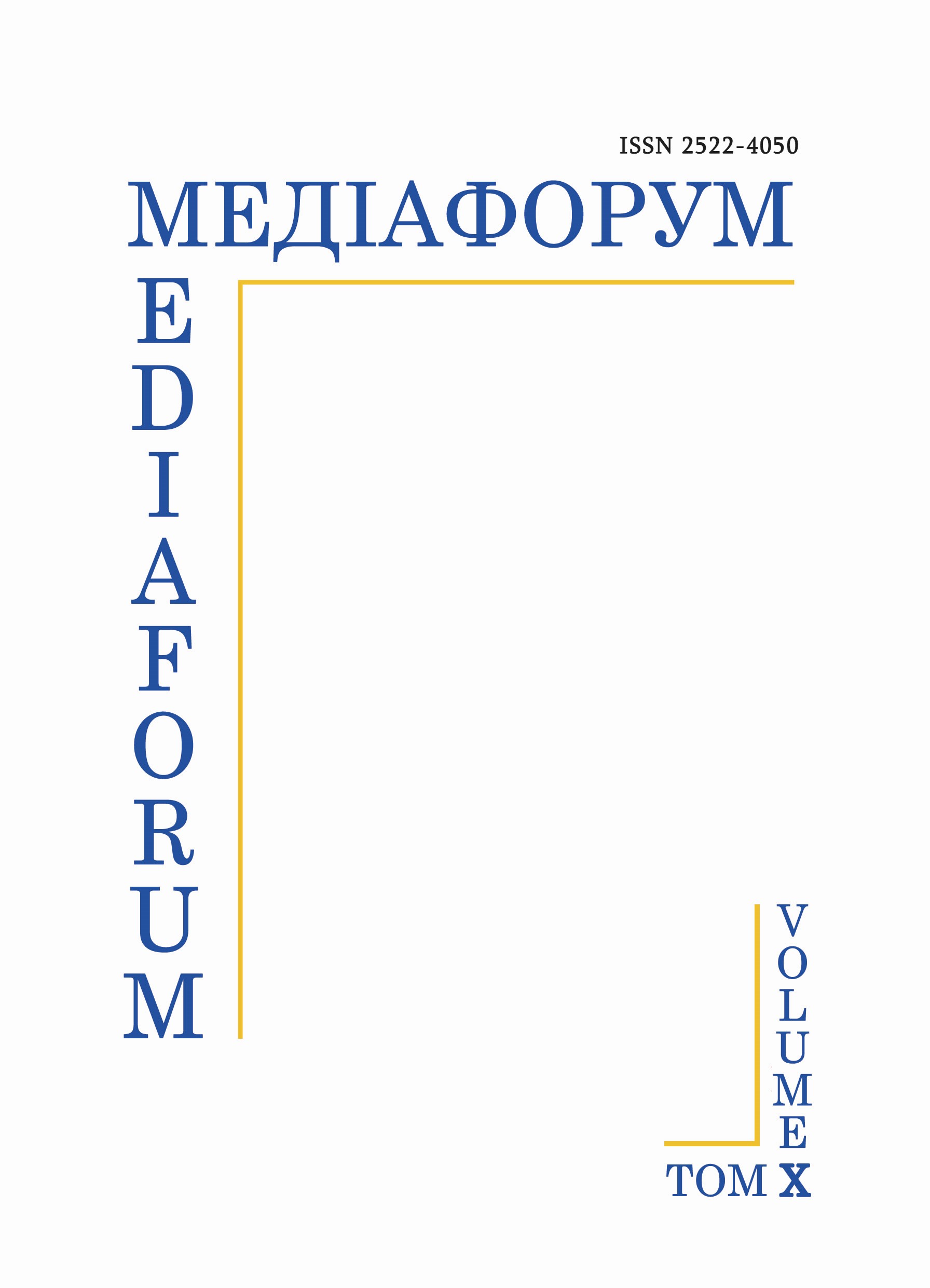Нова якість ідентичностей і націотворення в епоху Модерну
DOI:
https://doi.org/10.31861/mediaforum.2022.10.11-24Ключові слова:
ідентичність, нація, модерн, етнос, капіталізм, лібералізмАнотація
У статті йдеться про взаємозв’язок ідентичностей з націо-творчими процесами в епоху Модерну. Ідентичність – це невіддільна характеристика людини, що виявляється, з одного боку, у визнанні своєї унікальності, а з іншого – у відчутті належності до певної спільноти. Наголошується, що саме в епоху Модерну, а це капіталізм в економіці і лібералізм в політиці, починаються націотворчі процеси. Формуються найголовніші риси нації: спільні міфи та історична пам’ять; спільна мова, громадянська культура; єдині юридичні права та обов’язки для всіх членів; спільна економіка з можливістю пересування у межах національної території, національна ідея (яка включає політичну програму розвитку спільноти); першість національного в ієрархії ідентичностей спільноти. Розглядається процес формування політичної нації у Франції і нації, заснованої на етичних, культурно-історичних зв’язках у Німеччині. В міру розгортання націотворчих процесів починає формуватися національна ідентичність, що звертається до таких маркерів, як національна мова, державний кордон, національна культура, національний характер, модернізаційні процеси.
Завантажити
Посилання
Balibar E., Vallerstayn I. Rasa, natsiya, klass. Dvusmyslennyye identichnosti. M.: Logos, 2004. 272 s.
Verderi K. Kuda idut natsiya i natsionalizm // Natsii i natsionalizm / B. Anderson, O.Bauer, M. Khrokh i dr.; per. s ang. i nem. L. Ye. Pereyaslavtsevoy, M. S. Panina, M. B. Gnedovskogo. M.: Praksis, 2002. S. 295.
Voropay T. S. V poiskakh sebya. Identichnost’ i diskurs. KH.: KHGPU, 1999. 418 s.
Gegel’ G. Raboty raznykh let: V 2 t. T. 2. M.: Mysl’, 1973. 630 s.
Daníl’yan G. Ídentichníst’ yak problema klasichnoíі fílosofs’koíі dumki // Gumanítarniy chasopis. 2005. №3. S. 18-19.
Dyurrenmatt F. Sobraniye sochineniy v 5-ti tomakh. M.: Folio, Progress, 1998. T.4. S. 327.
Dyuchi L. Konstitutsionnoye pravo. Obshchaya teoriya gosudarstva. M.: Infra-M, 2013. 427 s.
Koval’ova G. Opozitsíya «svíy-chuzhiy» pri formuvanní natsíonal’noíі ídentichností v kontekstí globalízatsííі // Naukoví zapiski natsíonal’nogo uníversitetu «Ostroz’ka akademíya». Seríya: Fílosofíya. Vip. 5. Ostrog, 2009. S. 87.
Leybnits G.V. Sochineniya v 4-kh t. M.: «Mysl’», 1989. T. 4. S. 418.
Monten’ M. Opyty. M.: Golos, 1992. 384 s.
Russo ZH-ZH. Pro spíl’nu ugodu, abo printsipi polítichnogo prava. K.: Post-Royal, 2001. 349 s.
Fikhte I. Fakty soznaniya; Naznacheniye cheloveka; Naukochteniye. M.: AST, 2014. 784 s.














